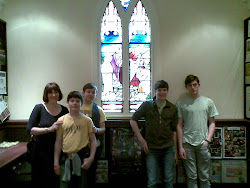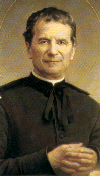The novel Cranford by Elizabth Gaskell and the ( reasonably recent) TV series.
Is the town of Cranford a glimpse of Utopia..St Thomas More's idea of everyone living and working together, of community..Modeled on Plato's Republic, written in Latin, finished and published in 1516, it describes an imaginary land, purged of the ostentation, greed, and violence of the English and European scenes that More surveyed. Did More write this tongue-in-cheek? Did Gaskell?
Or is Cranford a statement on women's roles, at that time?
In the first place, Cranford is in possession of the Amazons; all the holders of houses above a certain rent are women. If a married couple come to settle in the town, somehow the gentleman disappears; he is either fairly frightened to death by being the only man in the Cranford evening parties, or he is accounted for by being with his regiment, his ship, or closely engaged in business all the week in the great neighbouring commercial town of Drumble, distant only twenty miles on a railroad. In short, whatever does become of the gentlemen, they are not at Cranford. What could they do if they were there?
This week, we are also looking at The Giver by Lois Lowry - is Josh's society meant to be Utopia, yet ends up being a dystopian society, full of horror...who has the right to say whether a child will live?
Using literature as a model text for student writing is widely regarded as a sound strategy for engaging students, both as readers and as writers. This practice is especially effective when the connection between model text and student writing is reflexive, as in the case of The Giver, in which storytelling and memories are central to understanding and appreciating the literature. Students should be led to understand, as Jeffery Wilhelm notes in You Gotta BE the Book: Teaching Engaged and Reflective Reading with Adolescents, that storytelling is "a primary way of knowing and organizing our personal knowledge of ourselves and the world. Storying defines humanity, makes us human, empowers us in being who we are, and makes it possible for us to conceive of being more than we are" (52-53). Reading stories about memories and storytelling while writing such stories themselves, students build literacy skills and gain an appreciation of the importance of narrative and history in their lives.
And then there is The Catcher in the Rye - author J.D. Salinger passed away this week. "I almost always write about very young people"
Subscribe to:
Post Comments (Atom)




1 comment:
Now I want to go read it! It was on PBS but I cut off the satelite subscription.....
Post a Comment